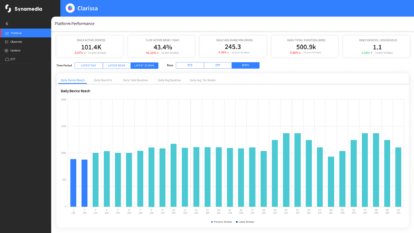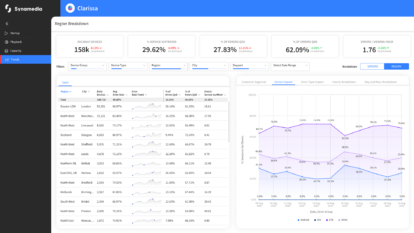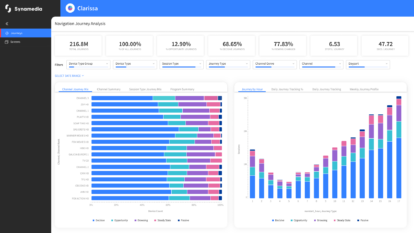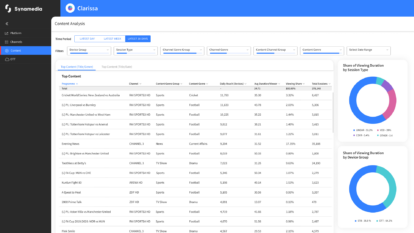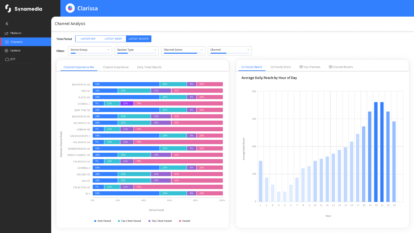Growing up as the youngest, I had a unique perspective on music thanks to the diverse tastes of my siblings. While my sisters introduced me to the great singer-songwriters of the ’70s like Carole King, Joni Mitchell and James Taylor, my brothers exposed me to the guitar-driven rock of Aerosmith, Lynyrd Skynyrd, and The Guess Who. As I grew older, my musical preferences, influenced by my friends’ tastes, expanded further to encompass AC/DC, Springsteen, Petty, and U2.
This was old-fashioned content discovery, shaped and personalised for me over time.
One band stood out and captivated my attention like no other – the mighty Van Halen, as they were known back in the day. The allure of Van Halen wasn’t solely due to David Lee Roth’s captivating stage presence, Michael Anthony’s harmonies, or Alex Van Halen’s impeccable drumming. The main reason was Eddie Van Halen himself. Regarded as one of the top rock guitar players of all time, Eddie had a legendary virtuosity. His combination of tone, technique, speed, and melodic playability was simply unparalleled.
- 5 Principles of Metadata Enrichment
- 10x your metadata ROI
- Synamedia Go – Smart metadata enrichment and more
Adding to Eddie’s mystique was his collection of guitars, with one, in particular, achieving legendary status – the Frankenstrat (so iconic it is on display at The Metropolitan Museum of Art). Eddie personally built this instrument in 1975, showcasing his resourcefulness and experimental spirit. Combining elements like a Stratocaster-style body, a Gibson PAF humbucker pickup, and a Kramer small-scale neck, he created a guitar with a distinctive and raw sound.
Combining the right elements
Over the years more modifications were made, and the Frankenstrat’s powerful tone, coupled with Eddie’s unmatched technique, sparked a sonic revolution that inspired countless guitarists and shaped the sound of rock music for generations.
So, what does the Frankenstrat have to do with TV content discovery?
The answer lies in the concept of combining the right elements to create an exceptional product. Just as Eddie Van Halen sought to amalgamate the best components from different guitars to craft his ultimate instrument, content providers can strive to create the “Frankenstrat of video” – an optimal viewing experience that offers a diverse range of content genres within a unified solution.
Creating a more personalised experience
In the realm of TV content discovery, consumers face the challenge of fragmented content and the proliferation of service providers. Traditional TV providers, broadcasters, OTT providers, and user-generated services each present their own catalogues and platforms, creating a bewildering landscape for viewers. Much like Eddie’s quest to combine the best aspects of different guitars, consumers desire a streamlined experience that brings together a vast array of the best content offerings.
To address this challenge, content providers can learn from Eddie’s approach to the Frankenstrat. By focusing on key elements such as metadata enrichment, content aggregation, search functionality, and recommendations, providers can curate an immersive and personalised viewing experience for their audience.
Metadata Enrichment
Metadata enrichment plays a crucial role in enhancing the video content discovery experience. Moving beyond basic metadata descriptions like title and synopsis, a super-rich experience can be achieved by connecting other assets with the rest of the world. By enriching raw metadata with additional information such as genre, cast, director and related content, providers can offer a more immersive and engaging viewer experience. This deeper level of metadata enrichment also empowers viewers to discover content based on their specific interests and preferences.
Content Aggregation
Content aggregation is another essential element in the quest to create the Frankenstrat of video. With the multitude of content sources available today, bringing multiple catalogues into a single platform is critical. By combining assets from different catalogues and intelligently eliminating duplicates, providers can present viewers with a cohesive and comprehensive content library. This aggregation process simplifies video content discovery, ensuring that viewers can access a wide range of content seamlessly and efficiently.
Enhanced Search
Improving search functionality is vital to address the challenge of navigating through vast catalogues and multiple services. Dealing with misspellings, offering intelligent suggestions, and providing intuitive search features enable viewers to quickly find the content they desire. By leveraging advanced algorithms and machine learning techniques, search capabilities can be optimised to understand user intent, to predict preferences, and to present relevant results.
Personalised Recommendations
Recommendations take video content discovery to the next level by leveraging data analysis and user behaviour. Going beyond merely suggesting content based on what someone has watched, recommendations delve into the subtleties of what like-minded viewers have enjoyed. By mining data, identifying patterns, and understanding viewer preferences, providers can offer tailored, personalised content recommendations that go beyond the obvious. They create a more personalised viewing experience, enabling viewers to explore content that aligns with their interests and to discover hidden gems they may have otherwise overlooked.
Building the Frankenstrat of video
In essence, the Frankenstrat concept teaches us the value of combining the right elements to create a superior product. Just as Eddie Van Halen’s guitar revolutionised rock music, an optimised content discovery experience can revolutionise the viewer experience, particularly how viewers engage with, and enjoy their, favourite shows and movies.
To enrich your service’s content discovery with a unified solution, complete with content aggregation, metadata enrichment, content recommendation and search functionality, discover the power and flexibility of Synamedia Go.
Or click here to arrange a fifteen-minute discovery call.
About the Author
JT Taylor is responsible for developing and driving all product marketing, sales enablement, and thought leadership initiatives for two areas of the Synamedia portfolio: Synamedia Go, an open, modular, and flexible streaming video platform; and Gravity, a device management platform that can simplify the management of subscriber’s whole home network. When he’s not wearing his marketing hat, JT is an avid golfer and pseudo musician.



